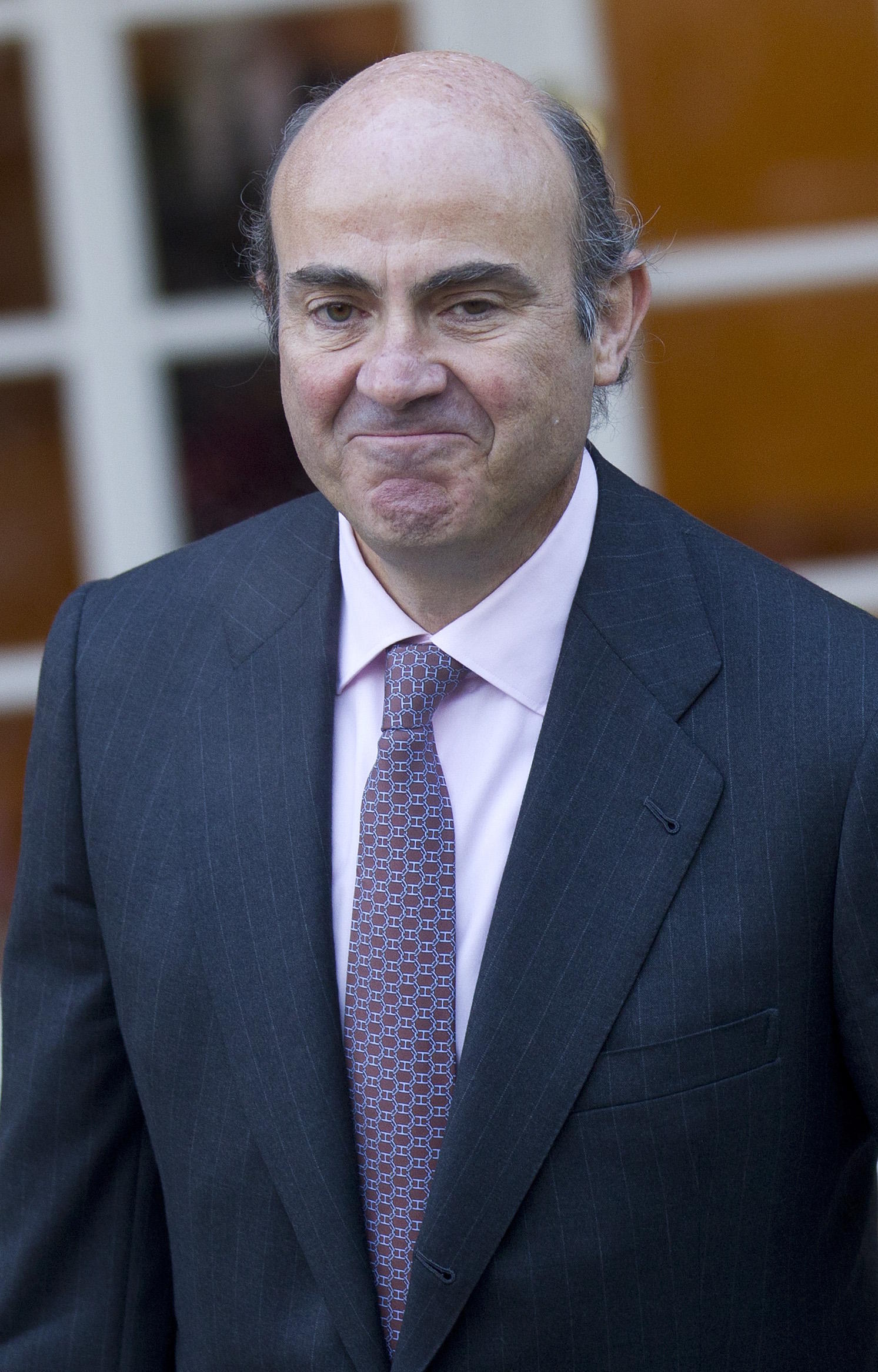On April 2, renamed by US President Donald Trump as 'Liberation Day,' has marked a before and after in the way the European Central Bank (ECB) analyzes the economic scenario. The supervisor's vice president, Luis de Guindos, has acknowledged that the tariffs announced by Washington have opened a new analysis scenario and have placed Europe at a "crossroads" to which it must respond in a "sensible and thoughtful" manner while trying to "avoid an escalation of trade confrontation, which would be very negative for everyone."
This was expressed on Tuesday during his speech at the General Assembly of the AEB (Spanish Banking Association), where he acknowledged that the measures taken by the Trump Administration have changed the perspectives held in Frankfurt and have opened a scenario of uncertainty regarding the impact that these measures can have on both markets and economies.
"Before Liberation Day, our analysis was that asset valuations were very high, both in equities and private fixed income, especially in the US but also in Europe; we highlighted pressures on the public accounts of the eurozone; we said that global economic uncertainty could affect growth and reflect on the solvency of companies," De Guindos enumerated. However, April 2 shook up that entire scenario, and now the ECB has two clear conclusions.
The first one is that "the decisions Trump is making represent a paradigm shift and the markets will have to adjust to a new equilibrium situation whose potential implications for the global economy are still unknown." From his analysis, this new situation will involve "greater fragmentation of the global economy, lower growth, higher inflation, and will impact trade flows, capital flows, and value chains, which will be modified." Thus, the challenge in the face of uncertainty is to determine what framework will establish a new balance in global financial markets.
The second conclusion is that Europe must take action in the "crossroads" it finds itself in. "It must respond to the decisions being made by the US, and the response must be thoughtful, prudent, sensible. We must try to avoid an escalation of trade confrontation, which would be very negative for everyone," stated the ECB Vice President.
Among other things, the former Spanish Economy Minister believes that the EU "must increase its defense spending" to reach the ¤800 billion over four years that they have set as a goal, and in this increase, the challenge is to see how it is financed: "whether debt needs to be issued or taxes raised or other expense items reduced, which will depend a lot on the fiscal space of countries and the political and social space," he warned.
In any case, De Guindos believes that it is "evident that Europe must increase its autonomy in the new global geopolitical and economic order" to "increase our independence" and for this, reforms that have not been completed must be finalized, such as the integration of goods and services markets, the capital market union, and the banking union. "We also have to increase independence in the defense field. However, the most important thing initially is to act united. If the EU divides, everything will be much more complicated, and the response to the new challenges we face will also be," he pointed out to representatives of the Spanish banking sector.
To address these changes, the ECB official highlighted that the European and Spanish financial sectors are in a good position in terms of capital and liquidity, essential to face turbulence and take advantage of investment and financing opportunities that lie ahead in the coming years in Europe. "Ensuring a solvent banking system and maintaining the competitiveness of the Spanish economy at this time are vital."
However, in maintaining Spanish competitiveness, De Guindos has sent a veiled message to the government of Pedro Sánchez and, especially, to the Second Vice President for Labor, Yolanda Díaz: he does not approve of the proposal to reduce the workweek that is on the table. "At a time like the present, with the tariff situation, it is essential to maintain competitiveness, which implies avoiding increasing costs to the business structure, avoiding mistakes (reducing working hours in these circumstances does not seem ideal), and trying to maintain the competitiveness of the Spanish economy," he said.
